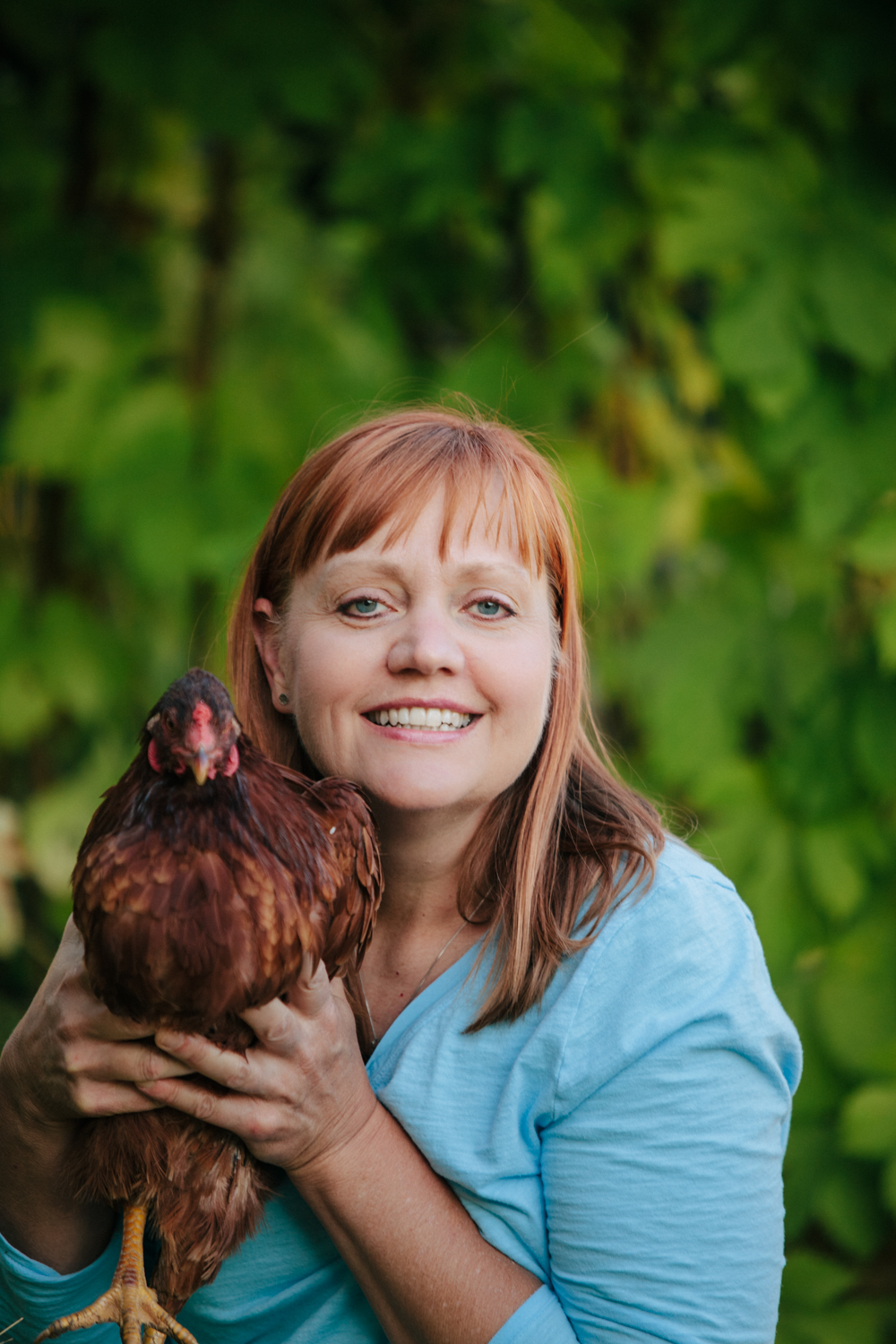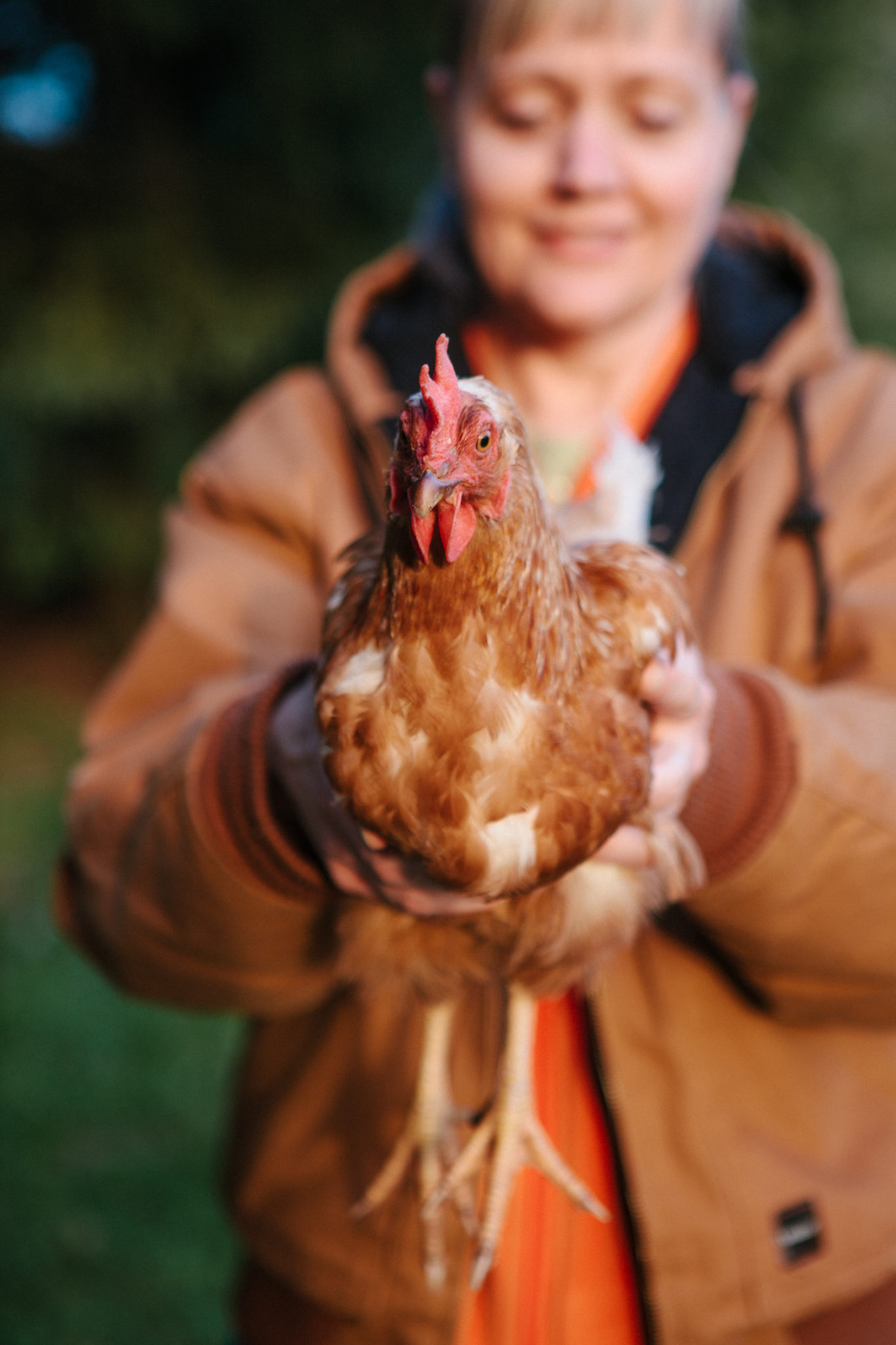Kerrie Hubbard of City Girl Farming talks cancer, raised bed gardening and chickens
A brush with death forces you to take stock of your life. After cancer, Kerrie Hubbard decided to take control over what she consumed by growing it herself.

Hubbard started writing City Girl Farming to chronicle her experience growing food and raising a small flock of chickens in her yard just outside of Portland, Oregon. Over the last decade, her homestead has grown and evolved, but she still approaches every new endeavor with the same intentionality — and, perhaps, a little improvisation.
In this interview with Hello Homestead for our Behind the Homestead Blog series, Hubbard talked about coping with her diagnosis, learning by doing and planning for the future.
Hello Homestead: How and when did you get started on your homesteading journey?
Kerrie Hubbard: It’s hard to pinpoint the exact moment. After recovering from cancer, I wanted to eat healthier, and really, be more in touch with my food — where it came from, how it was grown and raised.
That was about 10 years ago. At the time, I was living in the suburbs of Portland, Oregon. I converted part of the front yard and the extra large parking area into raised beds and set up a composting system. And that was my first dive in.
It wasn’t too far behind that I bought my first chicks. I started with a small flock of eight. Even though I was technically in Portland, where I lived was zoned to allow as many hens as I wanted, but no roosters.
I’m living on a farm now. I’ve been here for a little over three years. It’s a dream come true. The farm currently has around 40 chickens, a small herd of Dexter cattle, an orchard, a blueberry grove and dozens of other fruit trees scattered around the property. I live in the second house on a 38-acre farm owned by friends of mine. It’s really a nice way to do this because we can help each other out. You know that saying they have that it takes a small village to raise a child? I say it about farming — it takes a small village to hold down the farm.
HH: When were you diagnosed with cancer?
KH: I was diagnosed with cancer about 11 years ago. I’d just returned from biking down the Oregon coast to help raise money to build a dormitory for an orphanage. I’d felt sick-ish all summer while I trained for it — I was a pretty avid biker at the time — and couldn’t understand why I wasn’t getting over the training curve that summer.
Three weeks later, I was diagnosed with stage III lymphoma. I was totally shocked and unprepared for it, and the treatment made me very sick for about a year even though the treatment itself was around 5 to 6 months.
I’d never been sick, never been around anyone who was, didn’t know anyone who’d had cancer, so the rug really got pulled out from under me.
HH: How did that change your outlook?
KH: Bumping up against death was pretty life altering to say the least. I honestly thought I was going to die. Thankfully, the treatment was hugely successful and I’m cancer free today, but the experience made me slow down and be more deliberate about life.
HH: Why did you decide to start blogging?
KH: When I started blogging, I was post-cancer and enlarging my raised beds and contemplating chickens. There weren’t really any blogs out there at that time that dealt with chickens, especially for people that wanted small flocks. I saw a
When I started it, I didn’t even yet own chickens. I finally decided I needed some of my own, and I’m so glad I got them. It’s been a game changer for sure. Chickens were a gateway animal to a serious change in how I view food.
The blog never felt like work because it was just an outpouring of my life — what I was learning and doing as a new chicken person and how I was getting creative about finding space to grow more food while I lived in the city.
HH: You were born and raised in rural Montana. How do you think it has impacted your homesteading style?
KH: It had a huge influence on me and was also a reason I got into gardening in the city. Cancer just ramped it up more for me and made me much more serious about it.
Growing up we always had huge gardens and chickens and horses. For a while, we had rabbits (over 250 at one time) and sometimes we’d have pigs, cows and sheep.
The thing I remember most was hours and hours and days and weeks of canning. My mom canned everything so I grew up doing it. She taught me really good food preparation practices. I didn’t realize until I got to the city for college that this wasn’t a common skill. I thought everyone grew up learning how to grow and prepare food! My first year in the city, I remember being so homesick for food that tasted real that my mom sent me a care package filled with vegetables from the garden.
HH: When you started homesteading, did you have the requisite know-how for everything you wanted to do?
KH: I still don’t know everything. I figure life out as it goes. Seriously! You have no idea how often I’ve stood out in the middle of the garden or chicken yard, looking up how to do something on my phone.
HH: What is your recommendation for people who are interested in the homesteading lifestyle but feel they do not know enough to begin?
KH: Just do it. You won’t know enough, and that’s okay. You’ll get plenty of on-the-job training. If you start small and grow into it, you can learn without stretching yourself so thin so that you feel like quitting.
Talk to others that are already doing it. They’re easy to find online through social media and blogs, or by visiting feed stores and finding some contacts. Along with that, read and study. But all the reading in the world won’t really have you fully prepared for the actual experience of doing it.
HH: What do you hope for the future of your homestead?

KH: I would at some point like to add some turkeys into the mix, and I sometimes toy with the idea of more of a [community supported agriculture] kind of thing on a small scale. It would be nice to bring in more income from what I’m doing. I do make some selling eggs, veggies, fruit and flowers, but I’d like to increase that.
All I can say is, I love my life. It’s not as easy as running to the grocery store. But the connection I’ve gained by providing my own food is really life altering. Is it cheaper and easier to go to the grocery store for eggs? Yes, but the life that opens up for you when you are involved in the process is priceless. I wouldn’t change this life for anything.
This Q&A was edited for clarity and length from an interview with Kerrie Hubbard of City Girl Farming.
